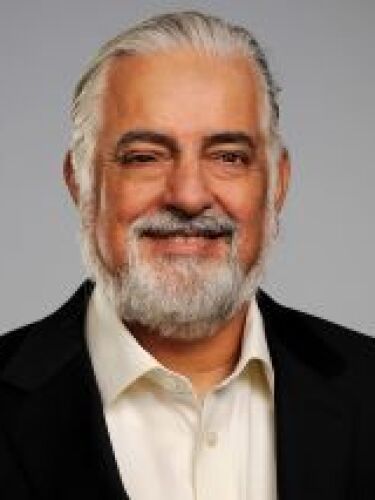BioSpace spoke with several leaders to gather their thoughts and predictions for the new year. Here is the first installment of this two-part series.
Voyager CEO Al Sandrock/courtesy of Voyager Therapeutics
Markets remain a challenge, and the Inflation Reduction Act (IRA) is messing with biopharma pipelines, but the industry’s top executives are high on the innovative potential of 2023.
BioSpace spoke with several leaders to gather their thoughts and predictions for the new year. Here is the first installment of this two-part series.
Al Sandrock
Chief Executive Officer
“I think we’re entering into a very exciting era for neurotherapeutics,” said Al Sandrock, former Biogen executive and current CEO of gene therapy and neuroscience-focused Voyager Therapeutics.
He highlighted advances in neurodegenerative as well as neuropsychiatric diseases and “potentially even some more important approvals for single gene diseases of the nervous system.”
Sandrock pointed to Biogen’s tofersen in superoxide dismutase 1 (SOD1) ALS, which has an FDA action date of April 25, 2023. Reata Pharmaceuticals’ omaveloxolone, an oral, once-daily activator of the Nrf2 transcription factor for Friedreich’s ataxia, is also under review by the agency.
“If it’s approved, that will be the first real therapeutic for that very debilitating disease,” Sandrock said.
The much-anticipated FDA decision on Biogen and Eisai’s lecanemab in Alzheimer’s disease is also on his radar.
On the neuropsychiatric side, Sandrock noted Karuna Therapeutics’ KarXT, which “could actually be the first treatment for some of the negative symptoms of schizophrenia.”
Karuna anticipates submitting a new drug application for the therapy by mid-2023.
Finally, Sandrock highlighted advances in modalities as a source of excitement in neurotherapeutics.
“[Thanks] to the huge advances in the genetics of human disease, as well as some of the real advancements in single-cell sequencing … we have a list of excellent, highly validated targets,” he said.
With modalities like protein therapeutics, antisense oligonucleotides and siRNAs with intrathecal delivery, “there’s virtually no undruggable target,” Sandrock said. “The problem is delivery. The blood-brain barrier still poses an issue.”
Many diseases begin in one area of the brain but go on to involve the whole cortex, requiring better delivery to reach broadly across these areas. But there are advances underway - including at Voyager, which is developing capsids that have shown widespread transgene expression superior to conventional adeno-associated virus serotypes.
“That’s what’s getting me even more excited about neurotherapeutics,” he said. “I think we should be able to help many more patients.”
Yvonne Greenstreet
Chief Executive Officer
Alnylam Pharmaceuticals
RNAi leader Alnylam also has something to say about neurodegenerative diseases. The company anticipates a read-out from its ALN-APP program for Alzheimer’s and cerebral amyloid angiopathy in 2023.
This is the first time Alnylam is bringing an investigational RNAi therapeutic into the central nervous system, Greenstreet told BioSpace.
While Alnylam’s track record is built on delivering RNAi therapeutics to the liver, “if we have positive initial clinical data in this Phase I study in tissue outside the liver, it will be enormously derisking with respect to the potential for a broader portfolio of neurodegenerative diseases where we aim to bring forward new medicines.”
In terms of challenges, Greenstreet cited the IRA and its potential effects on drug development.
“I’m sure there will be continued industry discussion on the legislative landscape to enable an ecosystem where drug developers can continue to be innovative and do what’s best for patients,” she said.
Emil Kakkis, M.D., Ph.D.
Founder, President and CEO
Emil Kakkis, founder, president and CEO of Ultragenyx, which develops therapies for rare and ultra-rare genetic diseases, sees good signs ahead for gene therapy.
Since the approval of Novartis’ Zolgensma for spinal muscular atrophy, “we’ve gone through a period of more difficulties … but there have now been some approvals, there are some Phase III trials happening, and I think the AAV gene therapy world is maturing.”
He added that the FDA is becoming more comfortable regulating the space.
From a regulatory perspective, Kakkis said there has been some improvement in the FDA’s attitude toward using biomarkers as primary endpoints. He specifically highlighted REGENXBIO’s investigational therapy for Hunter syndrome, where the agency accepted heparan sulfate as a CSF marker. Kakkis called this important progress.
“I think Peter Marks is very attuned to the issues of some of these rare and ultra-rare diseases,” he said, referring to the director of the FDA’s Center for Biologics Evaluation and Research. He noted the NIH’s Bespoke Gene Therapy Consortium, which Marks helped launch in October 2021, “will have an important impact on accelerating and enhancing the ability of AAV gene therapy.”
In terms of therapeutic spaces, he said, “new technologies have opened up some diseases that haven’t been studied before, particularly in neurogenetic disorders.”
Kakkis noted that there is also a “surge” in studies for inflammatory diseases.
“The pathways are getting more clarified, so the drugs are getting more specific and narrow. We’re getting past the steroids and broad drugs and into more specific areas.”
Peter Maag, Ph.D.
Chief Executive Officer
Kyverna
Peter Maag is excited to get back to in-person meetings. The CEO of Kveryna, which is applying advances in cell engineering for cancer to autoimmune diseases, believes innovation is serendipitous.
“Face-to-face meetings are extremely important to have off-site conversations and cross-pollination of ideas and investments,” he told BioSpace.
Maag also sees biopharma moving away from diagnoses that are “somewhat fuzzy.”
“I think what we’ll probably [see] advancements [in] moving away from these diagnoses like lupus that are somewhat unspecific,” he said. Instead, classifications will move toward mechanisms such as B-cell-driven diseases.
“Oncology has proven that you need to think about the mechanisms of action versus the diagnosis.”
Before stints at CareDx and Novartis, Maag focused on pharmaceuticals and globalization strategies at McKinsey & Company. This gives him unique insight into the current state of the biotech markets.
“I think the first six months are still going to be choppy, but then toward the end of the year, we’ll see a recurrence of tech being a key driver of economies,” he said. “There will be healthy growth, and there will be a rebound – hopefully in ’23, but for sure in ’24 – where tech is driving a lot of the excitement.”
Maag believes in having “smart capital versus lots of capital” and sees more smart capital coming back into biotech.
Andrew Hopkins
Chief Executive Officer
Exscientia
For Andrew Hopkins, CEO and executive director of Exscientia, 2022 was the “embodiment of all the dreams we had about how we’re going to move things forward.”
However, the world outside the AI drug discovery and design company has been tumultuous, he said, referencing inflation and the war in Ukraine.
Looking forward, Hopkins sees 2023 as “the point when the promise of personalized medicine starts to become a reality.”
He credits this to the current trend of moving beyond next-generation sequencing to the “integration of all the different omics technologies,” including combining single-cell sequencing and single-cell transcriptomics.
“All these different omics technologies now integrating together and using machine learning to integrate those different modes of omics really starts to give us the first insights into precision medicine and personalized medicine now becoming a reality,” he said. “That’s what I think we’re going to start to see in 2023.”
In the new year, Exscientia’s management hopes to launch at least two clinical trials of AI-designed drugs leveraging precision-medicine biomarkers derived from machine learning.
“We’re now starting to see those medicines designed by AI and patient-selection strategies also created by AI approaches entering into patient clinical trials. I think that’s going to be a real milestone for the whole field,” Hopkins said.
The next edition of “Executive Perspectives on 2023” will be published in January.










